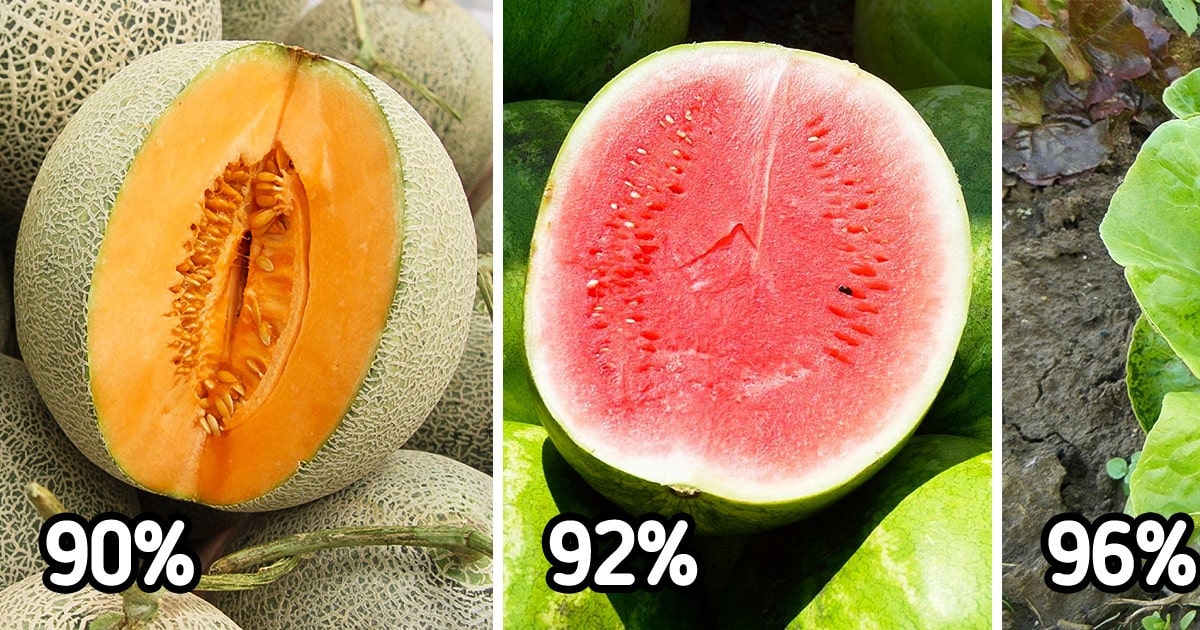Folic acid, a B-vitamin also known as vitamin B9, plays a crucial role in our overall health. This nutrient is essential for DNA synthesis, cell division, and the proper functioning of the nervous system. Despite its importance, many people are unaware that they might not be getting enough folic acid, which can lead to a variety of health issues.
In this comprehensive guide, we will explore 6 signs your body needs more folic acid. By understanding these key indicators, you can take proactive steps to address a deficiency before it impacts your health.
Let’s dive into the six warning signs—from body pains to digestive issues—that suggest your body might be craving more folic acid, and learn how to boost your intake naturally.
Symptoms Of Folic Acid Deficiency
It Can Cause Body Pains: Unexplained Aches and Fatigue
One of the early signs that your body might be lacking sufficient folic acid is the presence of unexplained body pains and general fatigue. Folic acid plays a significant role in energy production and cell repair, so its deficiency can leave you feeling weak and achy.
How Folic Acid Deficiency Leads to Body Pains
Muscle Weakness and Cramps:
Without adequate folic acid, your body struggles with proper cell regeneration and repair. This can lead to muscle weakness, cramps, and a persistent feeling of fatigue.
Joint Discomfort:
Folic acid deficiency can also contribute to joint pain, as the vitamin is essential for maintaining healthy connective tissue and reducing inflammation.
Overall Fatigue:
Low levels of folic acid may reduce the efficiency of your body’s energy production, resulting in a constant state of tiredness even after a full night’s sleep.
How to Boost Folic Acid Intake
Incorporate Leafy Greens:
Foods such as spinach, kale, and romaine lettuce are excellent sources of folate.
Consume Legumes and Beans:
Lentils, chickpeas, and black beans provide high levels of folic acid.
Supplementation:
Consider a folic acid supplement after consulting with your healthcare provider, especially if you’re at risk of deficiency.
For more details on the importance of folic acid and its role in reducing body pains, visit Harvard T.H. Chan School of Public Health.
It Affects Cognitive Function: Brain Fog and Memory Issues

Folic acid is crucial for brain function. A deficiency can lead to cognitive problems, such as brain fog, memory lapses, and difficulty concentrating. This is particularly concerning as cognitive health is vital for daily functioning and overall quality of life.
The Link Between Folic Acid and Cognitive Health
Neurotransmitter Production:
Folic acid is essential for the production of neurotransmitters like serotonin and dopamine, which play key roles in mood regulation and cognitive function.
Memory and Concentration:
Studies have shown that low levels of folic acid can impair memory and concentration. This can manifest as difficulty in processing information and retaining new memories.
Mood Disorders:
Insufficient folic acid may also contribute to mood disorders, including depression and anxiety, which can further impact cognitive performance.
Tips to Enhance Cognitive Function with Folic Acid
Dietary Changes:
Increase your intake of folate-rich foods, such as broccoli, Brussels sprouts, and fortified cereals.
Regular Mental Exercise:
Engage in activities that challenge your brain, such as puzzles, reading, or learning a new skill.
Stay Active:
Physical activity has been shown to improve cognitive function and overall brain health.
For further reading on folic acid and cognitive function, see Medical News Today’s article on folate and brain health.
It Can Lead to Shortness of Breath: Reduced Oxygen Carrying Capacity

Folic acid deficiency can have serious implications for your cardiovascular system, including causing shortness of breath. This symptom is often linked to anemia, a condition where your body doesn’t produce enough red blood cells to carry adequate oxygen to your tissues.
How Folic Acid Impacts Breathing
Anemia and Oxygen Transport:
Folic acid is critical for the production of healthy red blood cells. When levels are low, anemia can develop, resulting in reduced oxygen-carrying capacity. This leads to symptoms like shortness of breath, especially during physical exertion.
Fatigue and Weakness:
The lack of sufficient red blood cells not only affects your breathing but also contributes to overall fatigue and muscle weakness.
Cardiovascular Stress:
Chronic anemia can place additional stress on your heart as it works harder to pump oxygen-rich blood, further exacerbating shortness of breath and potentially leading to more serious cardiovascular issues.
Strategies to Combat Shortness of Breath from Folic Acid Deficiency
Increase Iron-Rich Foods:
Combine folic acid-rich foods with iron-rich options like lean meats, beans, and fortified grains to support red blood cell production.
Regular Check-Ups:
Monitor your blood levels through regular check-ups to ensure you’re not developing anemia.
Balanced Diet:
A balanced diet that includes plenty of fruits, vegetables, and whole grains can help maintain overall cardiovascular health.
For more on managing anemia and its symptoms, visit Mayo Clinic’s anemia guide.
It Affects Our Appearance: Pale Skin, Mouth Sores, and Tongue Swelling

One of the more visible signs of folic acid deficiency is its impact on your appearance. This deficiency can lead to pale skin, mouth sores, and even tongue swelling, which are indicators that your body isn’t getting the nutrients it needs to maintain healthy tissues.
Visible Signs of Folic Acid Deficiency
Pale Skin:
A lack of folic acid can contribute to anemia, which often manifests as pale, sallow skin due to reduced blood flow and oxygenation.
Mouth Sores and Tongue Swelling:
Folic acid plays a vital role in cell regeneration. Deficiency can lead to the development of painful mouth sores and a swollen, sore tongue, as the mucous membranes are particularly sensitive to nutrient imbalances.
Hair and Nail Health:
Folic acid is also important for the health of your hair and nails. Insufficient levels can lead to brittle nails and thinning hair, further impacting your overall appearance.
Improving Your Nutritional Intake for Better Appearance
Eat Folate-Rich Foods:
Include foods like leafy greens, citrus fruits, and legumes in your diet.
Stay Hydrated:
Proper hydration is essential for maintaining healthy skin and mucous membranes.
Consider Supplements:
If dietary intake is insufficient, consult with a healthcare provider about taking a folic acid supplement.
For more on the visible signs of nutrient deficiencies, check out Healthline’s guide to vitamin deficiencies.
It Can Cause Digestive Problems: The Gut-Health Connection

Digestive issues are another common symptom of folic acid deficiency. This vital nutrient is essential for the proper functioning of your digestive system, and its absence can lead to discomfort and other gastrointestinal problems.
How Folic Acid Supports Digestive Health
Cell Regeneration:
The cells lining your digestive tract need folic acid for regeneration and repair. A deficiency can lead to a weakened gut lining, resulting in problems like diarrhea, bloating, and discomfort.
Absorption of Nutrients:
Proper folic acid levels help maintain the integrity of the gut lining, which is critical for the absorption of nutrients. When your digestive system is compromised, you may not absorb nutrients effectively, leading to further health issues.
Inflammatory Responses:
A lack of folic acid can contribute to inflammatory conditions in the gut, such as irritable bowel syndrome (IBS), which can exacerbate digestive discomfort.
Tips for Enhancing Digestive Health
Fiber-Rich Foods:
Incorporate plenty of fiber-rich foods such as fruits, vegetables, and whole grains to support healthy digestion.
Probiotics and Prebiotics:
Include probiotic-rich foods like yogurt and fermented vegetables, along with prebiotic foods that help nourish good bacteria in your gut.
Balanced Diet:
Ensure your diet is well-rounded with adequate folic acid, iron, and other essential nutrients to support overall gut health.
For more insights on gut health and nutrition, visit The Gut Health Protocol.
Integrating Folic Acid into Your Diet: Natural Sources and Supplementation

Now that we’ve explored the various signs of folic acid deficiency, it’s crucial to understand how to ensure your body receives enough of this essential nutrient. Folic acid is found in a wide variety of foods, and incorporating these into your diet can help alleviate deficiency symptoms and promote overall health.
Top Natural Sources of Folic Acid
Leafy Greens:
Spinach, kale, and romaine lettuce are excellent sources of folate.
Legumes:
Beans, lentils, and chickpeas are not only rich in folic acid but also high in protein and fiber.
Citrus Fruits:
Oranges, grapefruits, and lemons provide a healthy dose of folate along with vitamin C.
Fortified Foods:
Many cereals and bread products are fortified with folic acid, offering an easy way to boost your intake.
Avocados:
A delicious and versatile fruit, avocados provide a good amount of folate along with healthy fats.
Supplementation: When to Consider It
If you suspect that you’re not getting enough folic acid from your diet, consider talking to a healthcare professional about supplementation. Folic acid supplements are widely available and can be an effective way to ensure you’re meeting your daily needs, particularly if you’re at higher risk for deficiency.
For more on dietary sources of folic acid and supplementation guidelines, visit National Institutes of Health Office of Dietary Supplements.

© joslinndek1 / instagram
Conclusion: Recognize the Signs and Prioritize Folic Acid for Optimal Health
Folic acid is a critical nutrient that supports numerous functions in your body—from cell regeneration and energy production to cognitive function and digestive health. Recognizing the signs of a deficiency is the first step in taking control of your health. If you experience unexplained body pains, cognitive problems, shortness of breath, pale skin, mouth sores, or digestive issues, your body might be signaling that it needs more folic acid.
By integrating folate-rich foods into your diet and considering supplementation when necessary, you can address these symptoms and promote overall wellness. Remember, small changes in your diet can lead to significant improvements in how you feel day-to-day.
Prioritize your health by paying attention to these warning signs and making informed dietary choices. With proper care, you can overcome folic acid deficiency, enhance your energy levels, and improve your quality of life. For further expert advice and the latest research on folic acid and nutrition, be sure to consult reputable sources like Harvard Health Publishing and Mayo Clinic.
Embrace the power of folic acid, listen to your body’s signals, and take proactive steps towards a healthier, more vibrant you. Your journey to better health starts with recognizing these critical signs and making the necessary changes to support your body’s needs every day.









